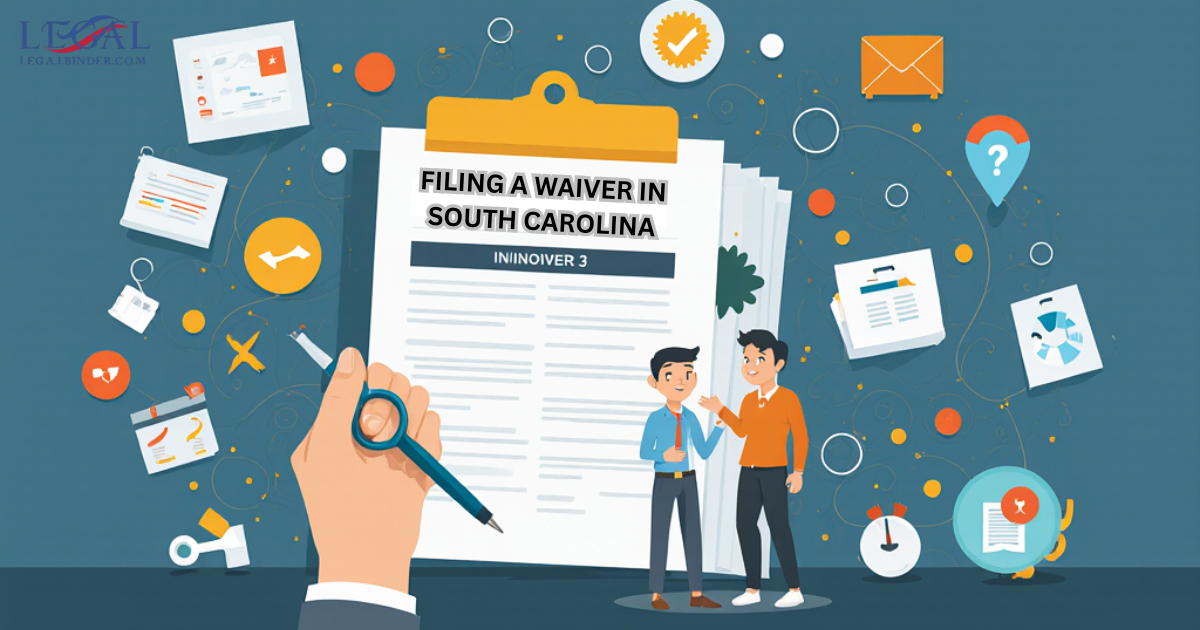Physical Address
304 North Cardinal St.
Dorchester Center, MA 02124
Physical Address
304 North Cardinal St.
Dorchester Center, MA 02124

Filing a Waiver in South Carolina — If you cannot afford court or agency fees in South Carolina, this guide explains how to prepare and file a waiver request correctly. It covers South Carolina–specific eligibility, the commonly used forms (including the SCCA405 Motion for Waiver of Costs and related indigency affidavits), step-by-step filing instructions, deadlines, and where to download authoritative state resources.
Read this South Carolina–focused guidance before you file to avoid common errors and speed up the court’s review.
A waiver in South Carolina typically asks a court or administrative body to excuse payment of filing fees, transcript costs, copy charges, or appellate fees because paying would create undue hardship. Requests are often called motions to proceed in forma pauperis, motions for waiver of costs, or affidavits of indigency.
Waivers commonly requested in South Carolina include:
Filing a Waiver in South Carolina judges apply court rules and statutes when deciding waivers. The court will examine your affidavit, income, assets, household size, and unavoidable expenses to determine indigency.
Key South Carolina resources to consult:
Note: The South Carolina Judicial Department publishes official court forms (e.g., SCCA405 Motion for Waiver of Costs) on its forms page; counties sometimes keep localized versions—check both the Judicial Branch and your county clerk’s website.
Follow these practical steps for a complete South Carolina waiver South Carolina filing packet.
Prepare these documents when filing a waiver in South Carolina:
There is typically no fee to submit a waiver application. Processing time varies by county and judge; decisions may take from several days to a few weeks.
Authoritative South Carolina resources:
A: Use the SCCA405 Motion for Waiver of Costs and Affidavit of Indigency for trial courts, and the appellate affidavit for appeals (see the SC State House PDF linked above). Check your county clerk for any local variations.
A: No—receiving benefits is strong evidence, but the judge considers the full financial picture before granting a waiver.
A: Yes. File an appellate affidavit of indigency with the appellate clerk before the appeal deadline to preserve your appellate rights.
A: If denied, you must pay the required fees to proceed. Consider seeking help from South Carolina Legal Services or a local law clinic for assistance.
A: County clerk self-help desks, the SC Access to Justice Commission, South Carolina Legal Services, and university law clinics offer help or referrals for eligible filers.
Filing a successful waiver in South Carolina requires the right form, accurate financial disclosure, and supporting documents. Start by downloading the correct affidavit from the official resources above, assemble benefit letters and pay stubs, and file with your county clerk or appellate clerk as appropriate.
For official forms and county contact information visit the South Carolina state portal and legislature pages linked above. For templates and additional guidance, visit USAlegalBinder.com or consult a qualified South Carolina attorney for case-specific advice.